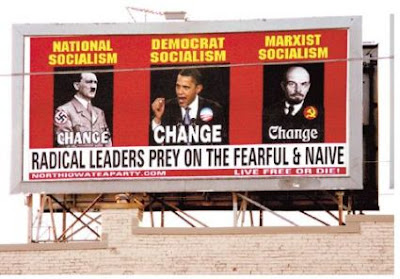Today, October 15, is Blog Action Day. It's an opportunity for bloggers around the world to post simultaneously on a single topic that relates to social issues or social change. This year, the topic is "The Power of We":
We choose this theme for a couple of reasons. Firstly, the popularity of the your suggestions; Community, Equality, Transparency/Anti-Corruption and Freedom, in our theme poll. Secondly, The Power of We is a celebration of people working together to make a positive difference in the world, either for their own communities or for people they will never meet half way around [t]he world.
When I thought about how I'd represent this idea in a marketing context, I have to admit that the first thing that popped into my head was an ad almost as old as I am, from of all advertisers, Coca-Cola:
Times have sure changed. Now, "Big Soda" is the enemy of activist marketers like former CP+B creative demigod Alex Bogusky. But, consumerism aside, was this hippy-dippy "we're all in it together" dream ever even achievable? Part of me really wants it to be possible.
As the father of a third-grader, I try to encourage my son to view all fellow humans as brothers and sisters. Growing up in a multicultural community, he has not yet learned to categorize people by skin colour or cultural affiliation. When I ask him to describe a classmate or adult in his life, he describes them based on their personality and actions, rather than appearance. It's nice, but I also realize it will not last.
Perhaps he will not grow up with the same racialized context I still work hard to leave behind, but as he grows he will join tribes of interests, location or politics that will inevitably bring him into conflict with others.
"We" humans are tribal. There is no getting around it. Social experimenters continue to replicate the same results when they create artificial or arbitrary tribal differences between groups of strangers. For example, diversity trainer Jane Elliott is able to turn brown-eyed and blue eyed groups agains each other. Tribalism is so engrained in our very biology that it threatens our world and future as a species. While it can express itself in (usually) harmless ways, like fanatic team loyalty in organized sports, even that can turn into violence. "We" in this context is another way of saying "us over them".
This idea of "we" exists in nationalism, religion, politics, even what band you like. And it's killing us. In the Middle East, "we" are under threat from a corrupt western civilization that insults our religion and wants to turn our daughters into prostitutes. So "we" attack and kill foreigners in their embassies, and even in their own cities.
In North America, "we" don't believe in biological, statistical, economic or climate science, so we oppose measures that would reduce our impact on the climate, help the poor and sick, and prevent unwanted pregnancies. It goes on and on.
Membership in a group is usually defined by opposition to other groups. And to protect our tribal identity, we naturally dehumanize outsiders. The most extreme cases are in war. But it happens every day when we make generalizations about "those people" or fail to treat our own tribe's agreed-to "truths" with healthy skepticism.
Which brings us to the world of cause marketing. Tribalism can be an incredibly powerful source for change, especially as the internet allows formerly isolated individuals to gain strength from a positive group identity.
A good example is the It Gets Better project, in which Dan Savage's attempt to reach out to LGBT youth at risk turned into a massive outpouring of support from both LGBT and straight ally communities.
What was great about this effort was its inclusiveness. Anyone was welcomed to join the tribe, as long as they had a message of hope and positivity for the youth. But they were still defined by a common enemy: homophobia.
The other good thing about that campaign was that it was based on hope, rather than fear. In fact, the enemy was fear.
Usually, when an enemy is defined, exaggerated fear of that enemy (rational or not) is used to rally the troops. And once rallied, those troops start to lose any sense of logic or common sense.
This can happen in any movement, whether its members consider themselves conservative or progressives.
This Blog Action Day, as a blogger, social marketer and human being, I would like to urge you all to embrace the positive side of "The Power of We". Welcome your friends. Understand and empathize with your enemies. And don't get sucked into the dark side of the We.
Cross-posted on Change Marketing and Osocio Academy.






No comments:
Post a Comment